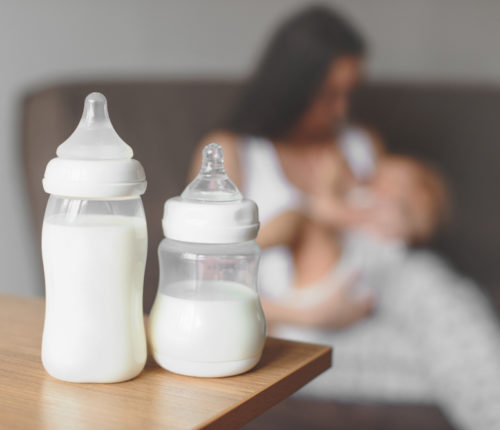
Newborn Feeding Problems: What Families Need to Know
One of the most important factors influencing healthy growth and development of newborns is feeding. Unfortunately, many newborns suffer from birth defects or feeding disorders, which can complicate their development and lead to extended time in the hospital, continued treatment plans or both. Newborn feeding problems can include:
- Acid Reflux (also called GERD)
- Bronchopulmonary Dysplasia (BPD)
- Gastrointestinal motility problems
- Trouble swallowing
- Overeating
- Under eating
Causes of Newborn Feeding Problems
The causes of newborn feeding problems vary, with the primary known causes attributed to the following:
- Premature birth (underdeveloped digestive system)
- Congenital disorders
- Jaundice
- Infections like herpes, or viral gastroenteritis
- Birth injuries, such as brain damage
While still difficult for new parents and the newborn, these conditions are generally considered treatable, with a positive prognosis for newborns receiving proper care. There are, however, more serious conditions that can exacerbate newborn feeding problems, such as:
- Beckwith-Wiedemann syndrome: An overgrowth syndrome resulting in particularly large newborns
- Infant botulism: Occurs when infants consume a bacteria called clostridium botulinum, which affects eating and breathing
- Hypoplastic left heart: Improper development of the left side of the infant’s heart, restricting blood supply to certain parts of the body
- Congenital hypothyroidism: Improper development of the thyroid, or improper function
These more serious conditions may require long-term treatment and monitoring in order to ensure that the newborn stabilizes feeding and suffers no additional complications.
Recognizing Problems and Getting Help
Premature, injured or otherwise high-risk newborns likely will be assessed and treated while in the Neonatal Intensive Care Unit (NICU) of the hospital. Newborns discharged or birthed at home may not be as closely monitored by healthcare professionals, so it is important that parents and caregivers understand how to recognize feeding problems and get help. Some important signs that may indicate a feeding problem include:
- Crying immediately after feeding
- Vomiting large amounts of milk/formula
- Persistent gas or discomfort
- Slow weight gain or weight loss
- Diarrhea after feeding
- Refusing feeding for over four hours
- Fever over 100 degrees Fahrenheit
- Cough
- Blood in bowel movement
Parents and caregivers should contact a doctor or seek emergency medical attention if any of these signs are apparent or worsen. It is important that parents and caregivers be aware of the delicate nature of newborn feeding, and be diligent in seeking proper treatment for any feeding problem. Without proper treatment, newborn feeding problems can lead to malnutrition or other health conditions.

